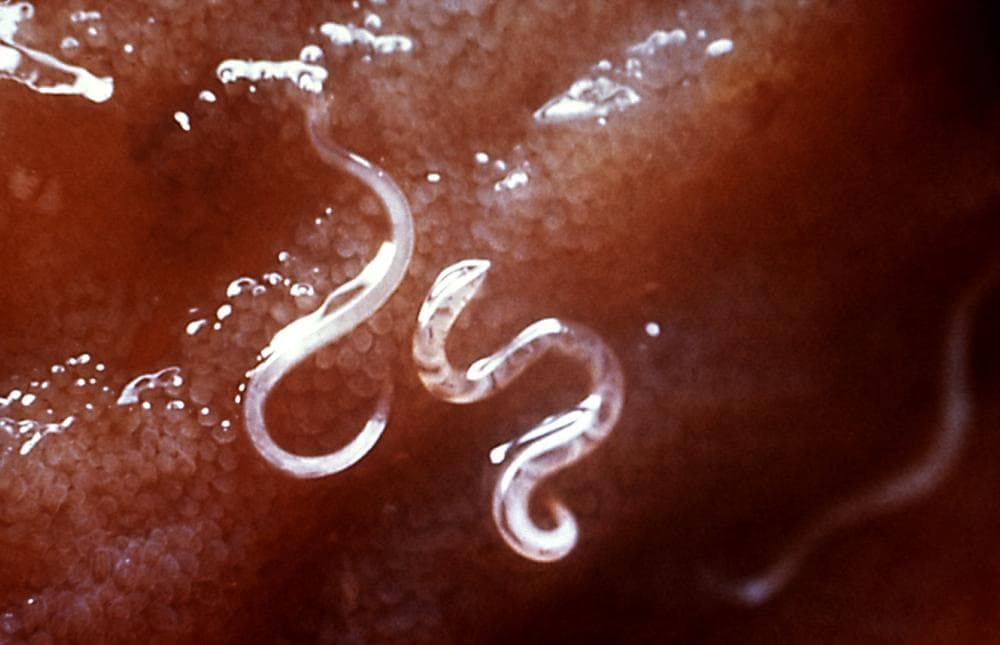Advertisement
Are We Too Clean For Our Own Good?
Resume
Parasites, bacteria, fungi... they may seem like dangerous creatures, things we've been told "invade" our bodies and cause disease. True, some do, but many don't. Our bodies actually depend on trillions of different types of organisms — living in and on us -- to keep us ticking everyday.
Our modern fixation on cleanliness may have come at a price. Moises Velasquez-Manoff argues that we've removed many organisms from our environment and we no longer come in contact with the very organisms "that have been with us since time immemorial and which, in very complex ways, make us well."
Dr. Joel Weinstock, now chief of the division of gastroenterology and hepatology at Tufts Medical Center, was a pioneer in the field pushing this "hygiene hypthosis" — that we're too clean for our own good, that the less we're exposed to microbes, the more likely we are to come down with diseases and have poorer immune functioning.
Dr. Weinstock's research focuses on parasitic worms and inflammatory bowel disease:
Guests:
- Moises Velasquez-Manoff, science journalist and author of "An Epidemic of Absence: A New Way Of Understanding Allergies and Autoimmune Diseases"
- Dr. Joel Weinstock, chief of the division of gastroenterology and hepatology at Tufts Medical Center
Excerpts From "An Epidemic of Absence":
More:
This segment aired on September 26, 2012.
